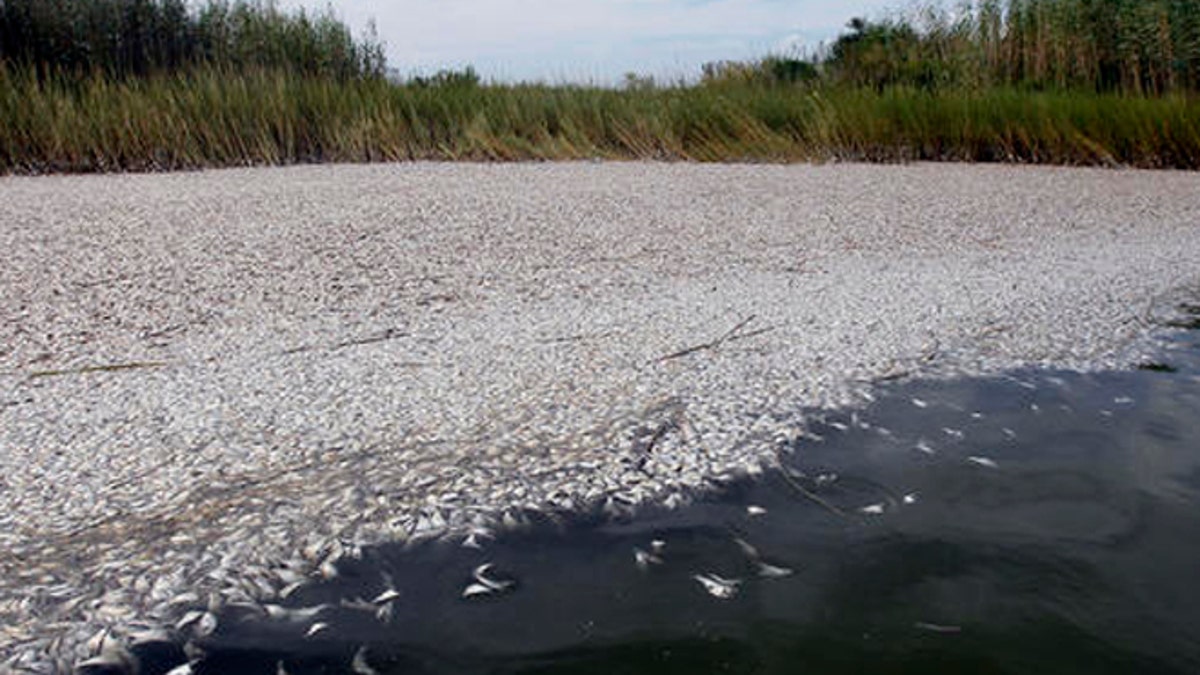
Dead pogies float in a fish kill in a pass near Bay Joe Wise on the Louisiana coast, Thursday, Sept. 16, 2010. It is the second fish kill discovered in lower Plaquemines Parish in the past week, typically a time of year when oxygen-depleted dead zones form in the Gulf of Mexico, but local officials believe the Deepwater Horizon oil spill may be a factor. (AP Photo/Patrick Semansky) ((AP Photo/Patrick Semansky))
As allegations surface that a local company contaminated the water, hundreds of dead fish have washed up on the shores of a Mexican reservoir and threatened the livelihood of local fishermen.
The unnamed company allegedly dumped thousands of liters of molasses into a canal that flows into the reservoir, choking the fish of oxygen and killing them through asphyxiation, Emeterio Corona, mayor of Acatlán de Juárez, told the BBC.
"The environment and the sustenance of everybody (in the community) was damaged. What will they live off? I'm outraged. This is a tragedy," Corona said, according to the French wire service Agence France-Presse.
Around 180 families live off fishing in the reservoir and local fishermen said that their livelihood was in peril following the molasses massacre. Gruesome photos shows images of dead carp and sea bream being gathered into the net by local fishers.
It is estimated that at least 500 tons of carp and bream were killed in the dump, according to Arturo Arceo, a member of a local fishing cooperative in the community of San Pedro Valencia.
The killer reservoir seems to be the just the tip of the iceberg as scientists in Michigan and Louisiana are predicting a big summer "dead zone" in the Gulf of Mexico unless a tropical storm hits the area shortly before or during the annual measurement.
The hypoxic zone in the Gulf is likely to be the largest since annual measurements began in 1985, covering 8,561 square miles — about the size of New Jersey, according to scientists from Louisiana State University and the Louisiana Universities Marine Consortium.
University of Michigan scientists predict that it will be smaller but still sizeable: the seventh-largest ever, at 7,286 square miles. That would be about the area of Connecticut, Rhode Island and the District of Columbia combined, according to the National Oceanic and Atmospheric Administration, which released those estimates
The Associated Press contributed to this report.
Follow us on twitter.com/foxnewslatino
Like us at facebook.com/foxnewslatino







































